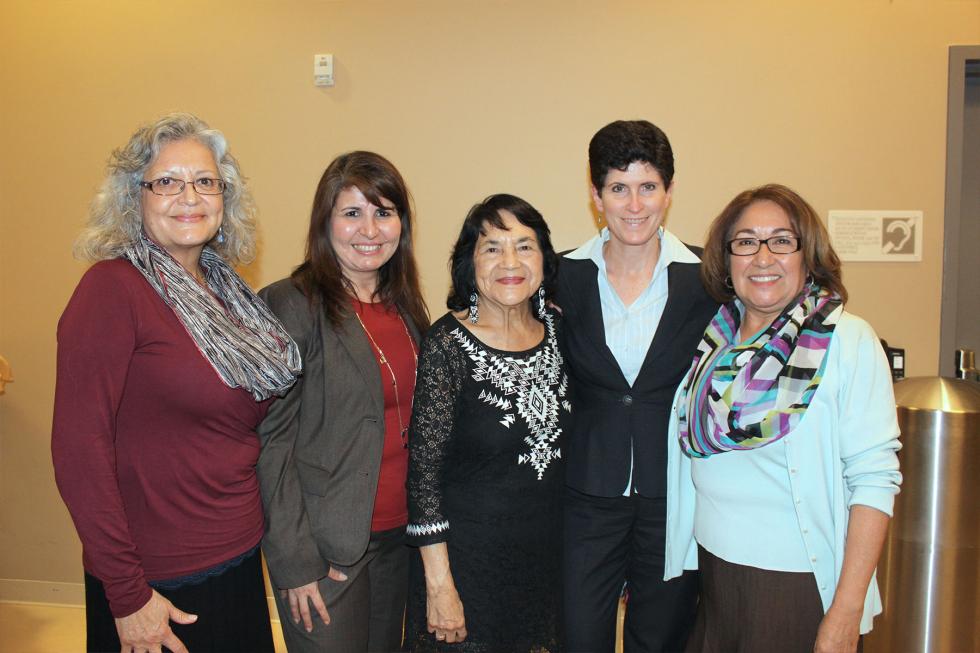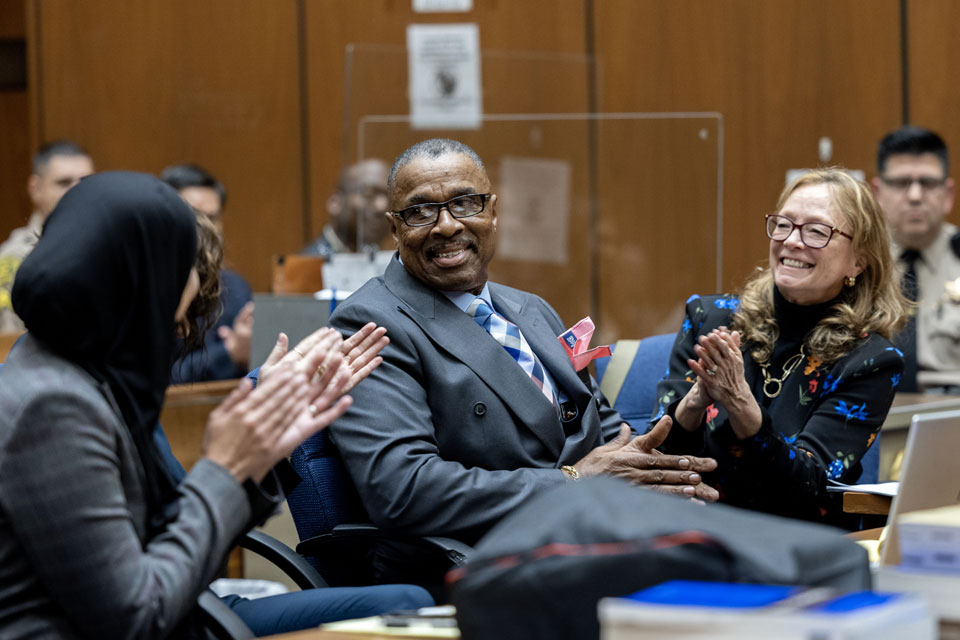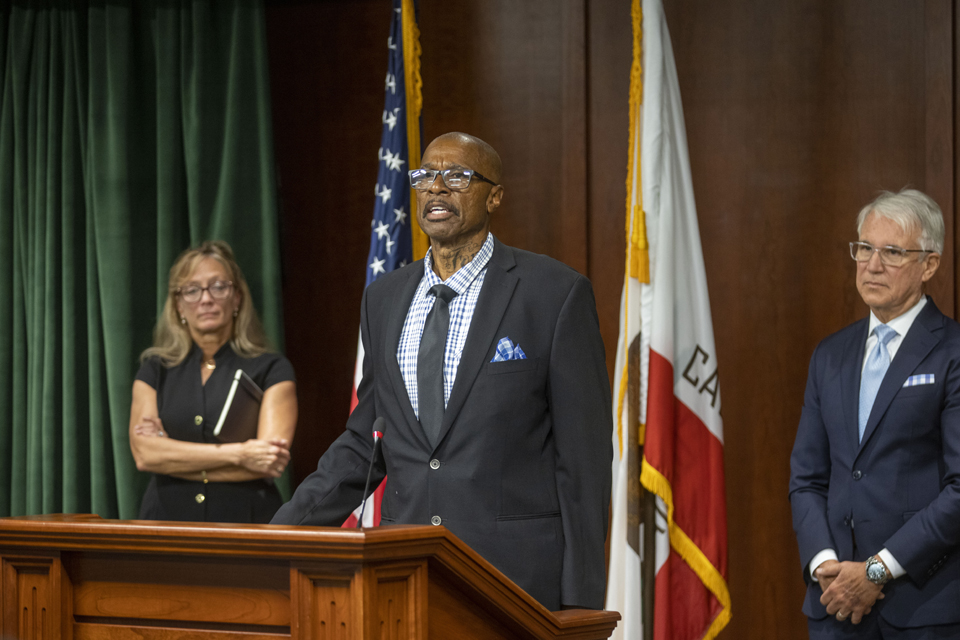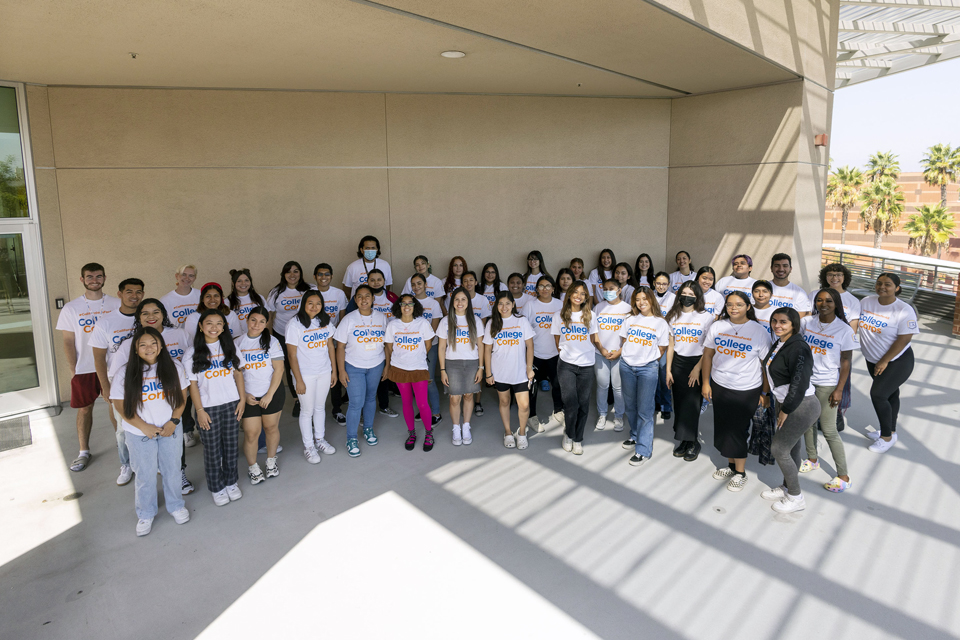Community members and Chicano civil rights leaders gathered at Cal State L.A. for an event honoring trailblazing journalist Ruben Salazar.
The March 3 event, held on Salazar’s birthday, featured a screening of the documentary film “Ruben Salazar: Man in the Middle,” and a reception celebrating the newsman’s life and accomplishments.
About 200 people attended the event. They included Salazar’s oldest daughter Lisa Salazar Johnson, labor leader and civil rights icon Dolores Huerta, former congressman Esteban Torres and former assemblyman and Los Angeles city councilman Richard Alatorre. Torres and Alatorre are Cal State L.A. alumni.
Journalism pioneer Charlie Erickson, who founded the Hispanic Link News Service and was one of Salazar’s closest friends, also showed up for the gathering at the University-Student Union. Cal State L.A. President William A. Covino participated in the celebration.
Salazar was the news director at Spanish-language KMEX-TV and a columnist for the Los Angeles Times. As the primary chronicler of the radical Chicano movement, Salazar’s reporting helped explain the triumphs and frustrations of a community that had largely been ignored by the media.
Salazar was killed on Aug. 29, 1970, as Chicano activists clashed with law enforcement officers along Whittier Boulevard in East Los Angeles after mayhem had broken out during the National Chicano Moratorium against the Vietnam War. The newsman was taking a break at the Silver Dollar Café and was struck in the head by a tear gas missile fired by a Los Angeles County Sheriff’s Department deputy. He was 42.
The birthday celebration was the culmination of several events commemorating Salazar’s legacy at Cal State L.A. The events have been sponsored, in part, by the Chican@ Latin@ University Assn. (CLUA).
A multimedia exhibit entitled, “Ruben Salazar: A Man of His Words, a Man of His Time,” is on display at the John F. Kennedy Library until March 26. The exhibit includes memorabilia, such as articles that Salazar authored, from his days as a cub reporter in his hometown of El Paso to his time as a foreign correspondent in Vietnam and Mexico for the Los Angeles Times.
There are also political buttons, posters, photos and film footage, which vividly capture the social and political turbulence that swept across the neighborhoods near Cal State L.A. where Salazar accomplished some of his finest reporting.
Photo (Middle): A poster commemorates Salazar. (Photo credit: Veronica Woo)





